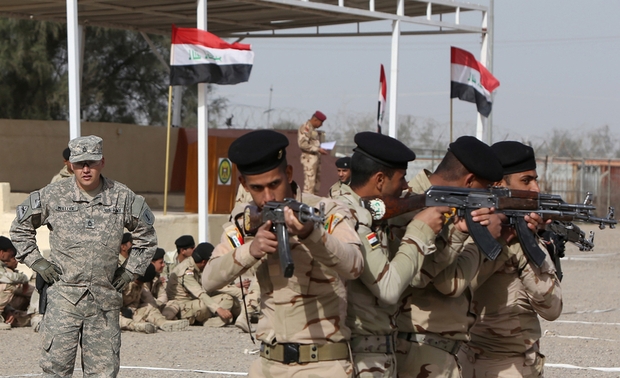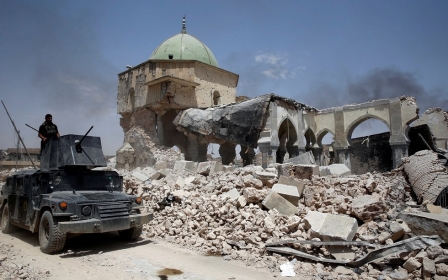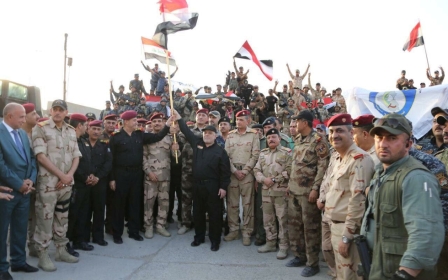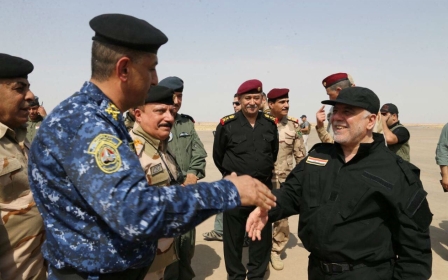US hopes to keep military footprint in Iraq after IS: General

The United States and several coalition countries want to maintain a military footprint in Iraq after the eventual defeat of the Islamic State (IS) group, a top US general said on Tuesday.
Lieutenant General Stephen Townsend said the Iraqi government had expressed an interest in having US and coalition troops stay in the country.
"Our government is equally interested in that, as are several coalition governments [who] have expressed an interest in joining in that effort," Townsend said in a video call from Baghdad.
Townsend, who heads the anti-IS coalition, added that discussions were in the final decision-making stages.
"I would anticipate that there will be a coalition presence here after the defeat of ISIS," he said, using a different acronym for IS.
In March, Iraqi Prime Minister Haider al-Abadi told Middle East Eye that Iraq wants fewer US forces on its territory after IS is eradicated.
"As we are crushing Daesh [IS], it is clear that there is a need to reduce the number of our allies who are helping us," he said.
"We have taken on board many countries that wanted to help Iraq as well. The number of forces increased and reached a peak in the battle of Nineveh, especially in the west of Nineveh at the moment. After this operation the number is going to be reduced," Abadi added.
After former US president Barack Obama completed a long-planned troop withdrawal from Iraq in 2011, the Iraqi security forces quickly weakened under then-prime minister Nouri al-Maliki.
By the time IS attacked in 2014, the military was unable to mount a defence and many units turned and ran, often dumping precious weaponry and vehicles.
"All of us can look back to the end of 2011 when the US and coalition forces left Iraq the last time, and saw what played out in the intervening three years. I don't think we want to replay that," Townsend said.
Iraqi authorities are celebrating after declaring that security forces had driven IS from their one-time biggest stronghold of Mosul.
But the jubilation is tempered by the fact the fight will continue elsewhere.
"There are still pockets of resistance in Mosul, hold-outs, and hidden IEDs (bombs) that will take weeks to clear, as well as remaining ISIS enclaves in Hawijah and western Anbar," Townsend said.
Currently, there are more than 5,000 US troops in Iraq, many of them advisors to the Iraqi security services.
Townsend said he anticipated the military presence to be smaller in the future and that troops would be housed in existing US facilities.
"We have a fairly robust footprint here that's fairly well distributed around the country, mainly for the purpose of defeating ISIS," he said.
"A future footprint would be smaller and probably use a subset of the bases that we have today."
New MEE newsletter: Jerusalem Dispatch
Sign up to get the latest insights and analysis on Israel-Palestine, alongside Turkey Unpacked and other MEE newsletters
Middle East Eye delivers independent and unrivalled coverage and analysis of the Middle East, North Africa and beyond. To learn more about republishing this content and the associated fees, please fill out this form. More about MEE can be found here.




